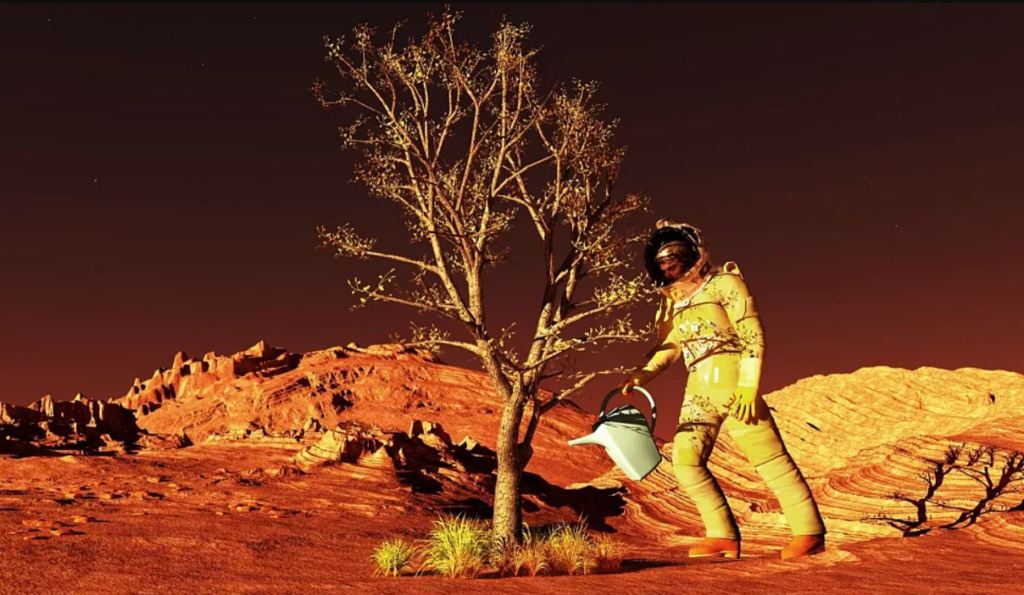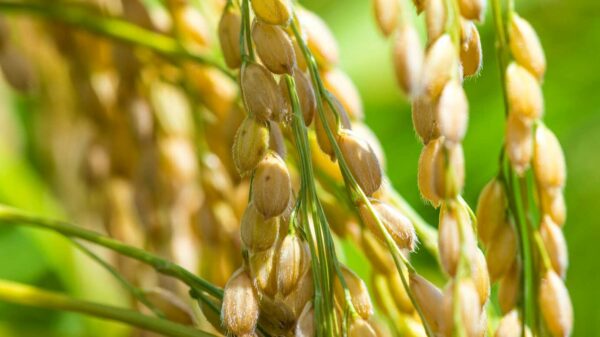Abhilash Ramachandran, a planetary scientist, announced at the Lunar and Planetary Science Conference on March 13 that Mars soil may have all the required ingredients for producing rice, one of humanity’s most vital crops. Yet, the plant may require assistance to thrive in the presence of perchlorate, a potentially hazardous molecule that has been identified on the surface of Mars (SN: 11/18/20).
“We wish to send people to Mars… nonetheless, we cannot bring everything with us. That will be costly, according to Ramachandran of the University of Arkansas in Fayetteville. He adds that growing rice there would be great because it is simple to cook. Just remove the husk and begin cooking.

There is a chance that rice would thrive in Martian soil.
Ramachandran and his colleagues cultivated rice plants in a Mojave Desert basalt-based Mars soil simulant. In addition, they cultivated rice in pure potting mix and in numerous mixes of potting mix and soil simulant. Every container was watered one or twice every day.
The scientists discovered that rice plants could flourish in the synthetic Martian soil. Nonetheless, the plants grew more delicate shoots and roots than those grown in the potting mix and hybrid soils. Even substituting 25% of the simulant with potting soil was proven to be quite beneficial.
The researchers also attempted to cultivate rice in soil with added perchlorate. They produced one kind of wild rice and two cultivars with a genetic mutation — engineered for resistance to environmental stresses such as dehydration — in Mars-like soil with and without perchlorate (SN: 9/24/21).
No rice plants developed in soil containing 3 grams per kilogram of perchlorate. At a concentration of 1 gram per kilogram, however, one of the mutant lines produced both a shoot and a root, whereas the natural type only produced a root.
The findings show that by manipulating the mutated SnRK1a gene of the successful mutant, humans may ultimately be able to design a rice cultivar fit for Mars.

